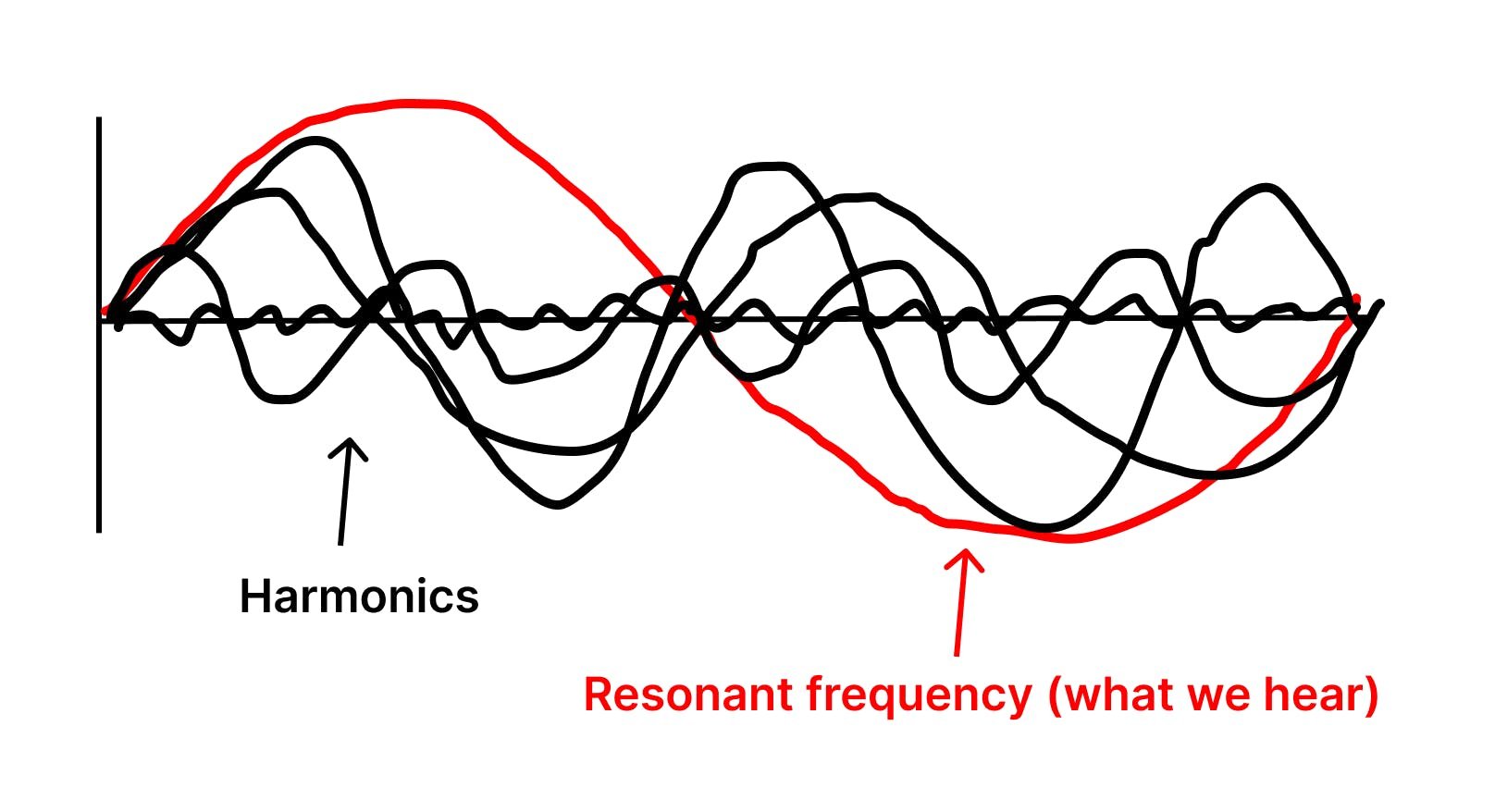Why does helium make your voice higher?
The short answer
When you inhale helium, the gas's lower density speeds up sound waves, amplifying higher frequencies in your voice while dampening lower ones, making your voice sound higher and squeakier without actually changing the pitch of your vocal cords.
The long answer
I don't care how old you are, it is always fun (and mildly dangerous) to breathe in a helium-filled balloon and hear your voice sound like a cartoon character.
Haven't heard the vocal effect of helium yourself? Here's Morgan Freeman's voice after breathing in helium.
To help explain how helium makes your voice sound higher, let's begin with the basics of how our voice works with regular air.
How your voice works with regular air
Source: Unknown
When you speak, air from your lungs passes through your vocal cords, causing them to vibrate. This sound isn't just a single tone; it's a complex mix that includes a fundamental frequency and several higher frequencies, known as harmonics.
While your vocal cords generate the raw sound, it's the unique makeup of your vocal tract (your throat, mouth, and nasal passages) that gives your voice its distinctive quality, or timbre. This is why each person's voice is unique.
As sound travels through the vocal tract, certain frequencies resonate more than others. These are the resonant frequencies. The vocal tract acts like a filter, amplifying these resonant frequencies while dampening others. The shape and size of your vocal tract can change, which in turn alters these resonant frequencies.
Our voices do NOT produce a pure sound like this.
While our vocal cords produce a multitude of frequencies, the unique makeup of our vocal tracts amplifies certain frequencies, which is what we hear most clearly.
The shape of our vocal tract plays a crucial role in how our voice sounds. It resonates with certain harmonics of our voice, amplifying these frequencies and thereby shaping the distinct sound quality, or timbre, of our voice.
You can experience this by singing a single note and changing the shape of your mouth from an "ee" sound to an "ooh" sound. (Try it out now, I'll wait.) While the fundamental note remains the same, the change in your mouth shape alters the harmonics that are being resonated with, producing a different sound quality.
How your voice works with helium
So what is happening when we breathe in helium?
Helium is a less dense gas than regular air which results in sound waves moving nearly three times as fast. When helium molecules fill your vocal tract, they bounce around much faster than regular air. This rapid movement causes the natural resonance of your vocal tract to align more strongly with the higher harmonics rather than the lower ones.
It's not that your vocal cords have changed in pitch; the lower frequency component of your voice is still present. However, it's much quieter compared to the helium-amplified higher frequencies, making your voice sound higher and squeakier.
🎈 Made it all the way to the end? Please enjoy my favorite helium-balloon video.
🧠 Bonus brain points
Are there gases that can be make your voice sound lower?
Yes, the most common gas used to produce this effect is sulphur hexafluoride. It makes your voice sound lower for the same reason helium makes your voice sound higher – it changes the density of the air and amplifies lower frequencies. Here's what that sounds like.
A word of caution: Since sulphur hexafluoride is denser than air, there's a risk of it settling in your lungs, leaving less room for oxygen. So if you do try it out, use common sense and stop if you start to feel lightheaded.
Curious about how the world works?
Today You Should Know is a free, weekly email newsletter designed to help you learn something new every Friday.
Subscribe today 👇
Check out some other curious questions:
Sources
Arnold, G. E. (n.d.). Speech - Harmonics, Structure, Phonology. Encyclopædia Britannica. https://www.britannica.com/topic/speech-language/Harmonic-structure
Gupta, H. (2023, October 19). If Helium Makes Your Voice Squeaky, Can Something Else Make It Deep?. ScienceABC. https://www.scienceabc.com/eyeopeners/helium-makes-voice-squeaky-can-something-make-low-deep-sulphur-sulfur-hexafluoride.html
Pisanski, K., Groyecka-Bernard, A., & Sorokowski, P. (2021, September). Human voice pitch measures are robust across a variety of speech recordings: methodological and theoretical implications. Biology Letters. https://www.ncbi.nlm.nih.gov/pmc/articles/PMC8478519/
UNSW School of Physics. (n.d.). Physics in Speech. PhysClips. https://www.animations.physics.unsw.edu.au/jw/speech.html
Wolchover, N. (2012, August 24). Why Does Helium Affect Your Voice?. LiveScience. https://www.livescience.com/34163-helium-voice-squeaky.html







It’s like an American accent but with calendars.